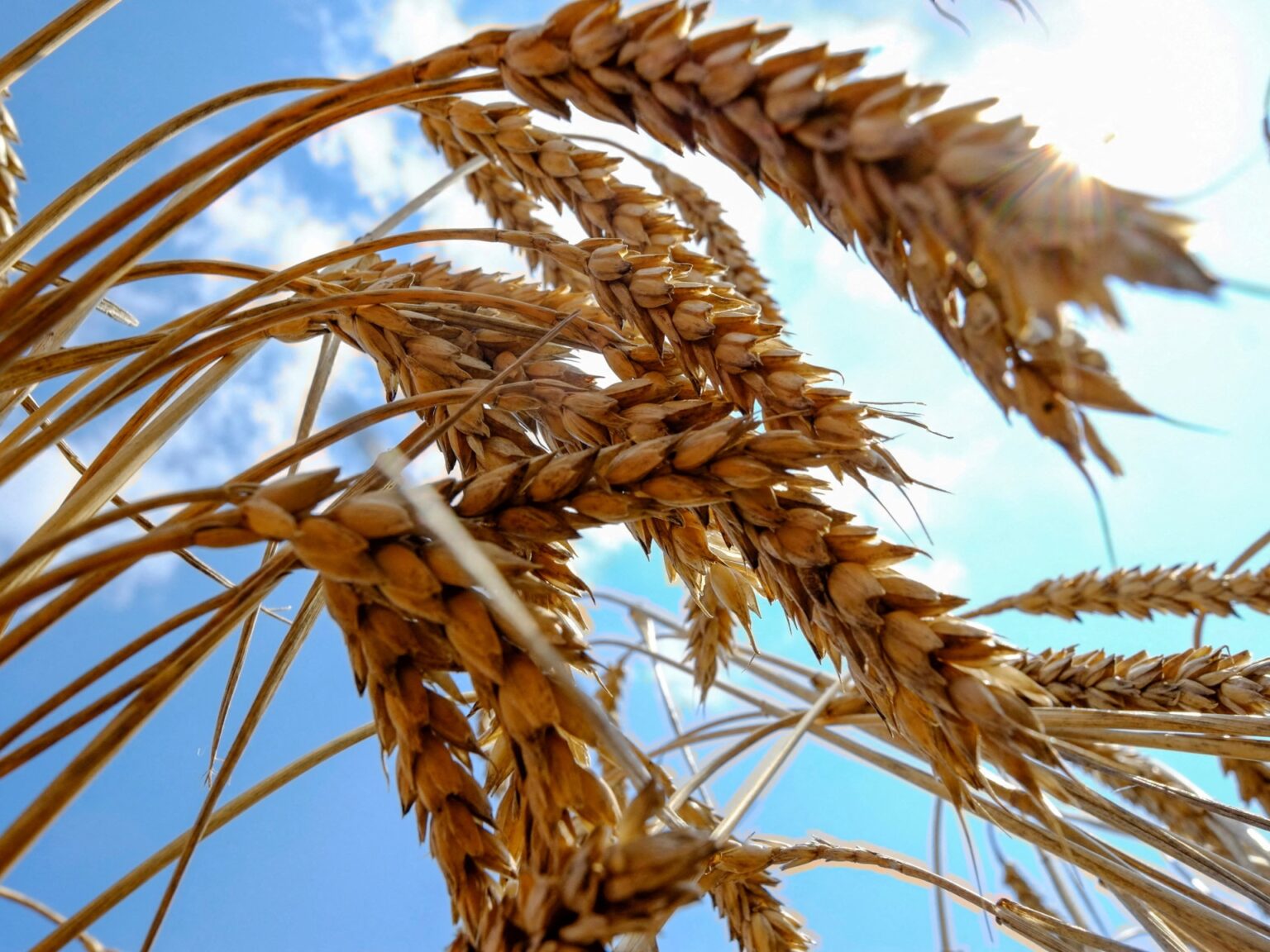Global Courant 2023-04-19 20:15:07
Unanimity is a concept that is often put to the test throughout the European Union.
After Russia invaded Ukraine last February, divisions over issues such as military aid and Ukraine’s candidacy for the EU have challenged an overall united front.
Last week, the EU’s approach to dealing with one of Russia’s closest allies – China – was also called into question following French President Emmanuel Macron’s comments that Europe should not be “followers” of Washington or Beijing regarding Taiwan .
And now Ukrainian grain threatens to divide the union.
Amid a recent surge in cheap grains and agricultural products from Ukraine, Poland and Hungary announced temporary import bans on Saturday to protect the interests of their own farmers. Slovakia joined them on Monday and Bulgaria on Wednesday.
Romania, another country that has witnessed peasant protests over the issue, has so far abandoned a ban.
While Ukraine acknowledges the concerns of European farmers, authorities in Kiev say Ukrainians are having a harder time.
But there are some signs that the crisis is abating.
Top EU officials have condemned the measures but promised to solve the problem with money by proposing millions of extra euros to support farmers on the continent.
And aAfter talks with his Polish counterparts in Warsaw, Ukraine’s Agriculture Minister Mykola Solskyi confirmed on Wednesday that the transit of Ukrainian grain and food products through Poland will resume.
Ukraine will also hold talks with the other EU countries that have imposed a ban later this week.
Rescuers work at the site of a residential building damaged by a Russian military attack in Sloviansk, Donetsk region, Ukraine (Press Office of the Regional Military-Civil Administration of Donetsk/Handout via Reuters)
After the war started in Russia, Moscow blocked shipping lanes from Black Sea ports, preventing Ukrainian ships from carrying grain and other agricultural products to the rest of the world.
The blockade ended last August, with a deal signed by Russia and Ukraine that exports will resume.
But Ukraine’s Solskyi has expressed concern about the status of this deal with Moscow, which currently expires on May 18.
He said it was “impossible to predict how many ships Moscow would let through”.
Meanwhile, Russia has accused Ukraine of obstructing ship inspection processes in Turkey.
According to the EU, more than 23 million tons of grain and other foodstuffs have been exported through the Black Sea Grain Initiative by March 2023.
To ensure there are no further barriers to global exports, the EU last year unanimously agreed to lift all excise duties on Ukrainian grains and introduced “solidarity routes” for the grains to transit.
(Al Jazeera)
More than a year after the war, this action by the bloc has angered farmers throughout Eastern and Central Europe.
“Ukrainian grains have to arrive in countries that need them urgently. But at the same time, this makes it difficult for countries like Romania, which is a net exporter of grains and more than half of our internal production is exported,” says Alina Cretu, executive director of the Romanian Forum of Professional Farmers and Processors Al Jazeera.
“If some local traders buy these grains from Ukraine, instead of buying from local farmers, which is already happening, our farmers will go bankrupt because we cannot compete with the price of Ukrainian grains,” she said.
“We feel that the EU is not clear what the situation is for farmers like us. By banning the import of Ukrainian grain into our markets for a certain period of time and ensuring its strict transition through Romania, our farmers will be able to get through this complex period,” says Cretu, who lives on a farm with her husband in southeastern Romania, where they grow wheat, barley, maize and sunflowers.
Similar sentiments have been expressed by farmers’ unions in Poland and other Central and Eastern European countries.
How are EU officials handling the crisis?
The European Commission has rejected the import bans, saying in a statement that “EU trade policy is an exclusive competence and therefore unilateral actions are not acceptable”.
Mats Cuvelier, a Brussels-based lawyer who focuses on EU and international trade, told Al Jazeera that this does not prevent EU member states from allowing agricultural products into the EU if they find that the products do not meet specific requirements, such as the sanitation of the EU. standards.
“Slovakia, for example, seems to have justified its ban on Ukrainian grain imports on the grounds that it found pesticides that are not allowed in the EU,” he said.
Slovak Agriculture Minister Samuel Vlcan said the ban is a measure to protect the Slovak agri-food sector and especially the health of consumers, but added that the transit of Ukrainian grains and other products through Slovakia can continue.
EU officials will discuss the bans this week.
Cuvelier added that while the European Commission could launch infringement proceedings against an EU member state if it fails to comply with the bloc’s trade laws, he expects the Commission to opt for a less confrontational solution, such as offering additional support to affected farmers.
In March, European Commissioner for Agriculture Janusz Wojciechowski allocated €29.5 million ($32 million) to Poland, €16.75 million ($18 million) to Bulgaria and €10.05 million ($11 million) to Romania, in an effort to support farmers.
On Wednesday, Ursula von der Leyen, the leader of the Commission, suggested an additional support fund of €100 million for farmers.
But Jacob Funk Kirkegaard, a senior fellow at the United States’ German Marshall Fund in Brussels, told Al Jazeera that money won’t solve the underlying problems because countries like Poland and Hungary need the bloc to address its ongoing political problems first.
“While food inflation is rampant, some EU countries may also be secretly happy with cheap Ukrainian grains. So negotiating these import bans, which are illegal under EU law, will be difficult,” he said.
The EU has withheld 138 billion euros ($151 billion) of money from Poland and Hungary in an effort to ensure that the countries respect the rule of law.
“In addition to these budgetary tensions with the EU, the Polish government is also under pressure heading into elections and needs the support of rural voters, otherwise the government will lose the election,” Kirkegaard said.
“In the case of Hungary, it is also more opportunistic of Prime Minister Viktor Orban who often exerts pressure within the bloc when unanimous decisions need to be made. It is also election time for Slovakia, so the politics are the same. But if Poland drops the ban, the other EU countries will also follow,” he added.
Romanian farmers protest outside European Commission offices over the price of grains and the impact of demand following an influx of cheap Ukrainian grains in Bucharest, Romania (Inquam Photos/George Calin via Reuters)
Cretu, the Romanian farmer, acknowledged that the grain deal is important for Ukraine, but in the long term wants to help the EU further and support agricultural workers within the bloc.
“We need more financial support and investment in improving logistics facilities, such as transport, infrastructure, port modernization and increasing storage capacity,” she said.
Kirkegaard also said the EU needs to zoom out and focus on the bigger picture.
“While there is bloc support for Ukraine, it is tempered by domestic concerns, which will persist. So while discussions to address each member state’s problems are difficult, they are important to achieve unanimity in the EU,” he said.
“If not, Russia will take advantage of this division and could use it to its advantage.”
Priyanka Shankar contributed to this report.
(TagsToTranslate)News








